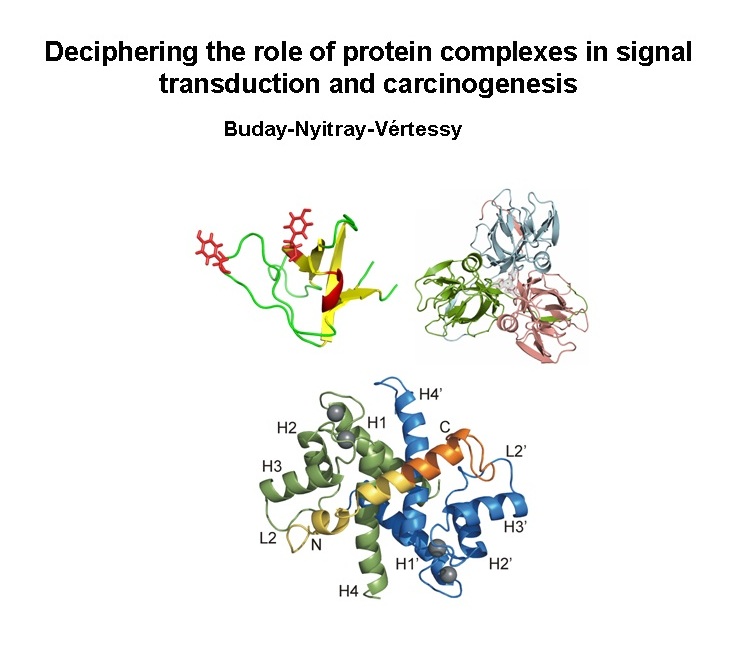Deciphering the role of protein complexes in signal transduction and carcinogenesis
The role of signal transduction proteins in carcinogenesis have been long recognized, and numerous examples are covered in details in the literature. Still, in many cases the molecular mechanism of these events are not yet known, despite the already available physiological evidence for the role of such complexes. Knowledge of the molecular mechanisms is, however, indispensable to design innovative new approaches to interfere with these processes, with the long-term aim of producing novel efficient anti-cancer therapies. Even more significant is the current highly promising trend of personalized diagnostics and cure; detailed mechanistic information on the underlying processes is strictly required here as well. Our collaboration aims at revealing the mechanistic secrets of molecular events in specific focused cases. The complexes covered in our joint project are known to be involved in carconigenesis and in metastasis. Among these, the Tks4/HOFI scaffold protein within the EGF signaling pathway is of key importance in human cancers. Mechanisms to protect genomic integrity require the fine-tuned interactions between DNA damage recognition and repair and pathways of nucleotide metabolism. In several cases, we will also focus on complexes relying on linear motifs, such as for the metastasis-associated S100A4/p53 and S100A4/annexin-2A complexes. For our research, the use a complex array of structural cell biology techniques becomes available by exploiting the complementary expertise and state-of-the-art infrastructure in our laboratories, potentially leading towards design of novel therapies.

László Buday - László Nyitray - Beáta G. Vértessy
